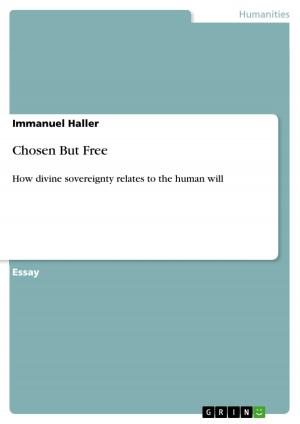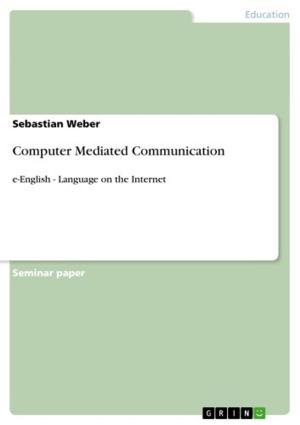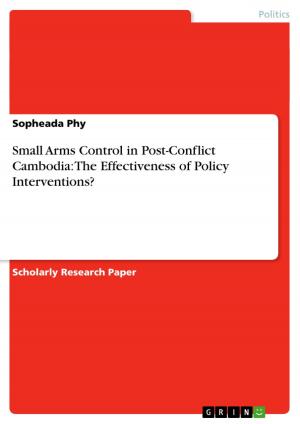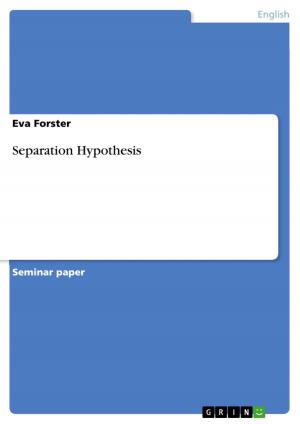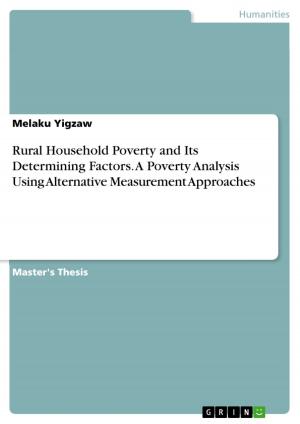The family group conference as a means of decision-making in matters of adult guardianship
Considerations of New Zealand's adult guardianship law
Nonfiction, Reference & Language, Law, International| Author: | Julia Honds | ISBN: | 9783638878906 |
| Publisher: | GRIN Publishing | Publication: | December 18, 2007 |
| Imprint: | GRIN Publishing | Language: | English |
| Author: | Julia Honds |
| ISBN: | 9783638878906 |
| Publisher: | GRIN Publishing |
| Publication: | December 18, 2007 |
| Imprint: | GRIN Publishing |
| Language: | English |
Research Paper (undergraduate) from the year 2006 in the subject Law - Comparative Legal Systems, Comparative Law, grade: A-, Victoria University of Wellington, 45 entries in the bibliography, language: English, abstract: This essay considers the question whether the family group conference should be introduced as a new and additional means of decision-making in New Zealand's adult guardianship law. Currently the Family Law knows the family group conference only in another context: When there are special problems with children the Children, Young Persons and Their Families Act 1989 gives the family as a group the authority to make decisions con-cerning the child. The question is whether this procedure is also suitable for decision-making on the affairs of adult family members who are not capable of leading their lives autonomously and cannot make their own deci-sions, for example because they suffer from mental disease or an intellectual handicap. After providing an overview of the current adult guardianship law, its principles and shortcomings, the family group conference will be presented and discussed as it works under the Children, Young Persons, and Their Families Act 1989. The main part of this research paper, then, deals with the advantages and disadvantages of the family group model being introduced for matters of adult guardianship. It will be considered whether this decision-making model can cope with the shortcomings of the current system and whether it serves the guiding principles of adult guardianship law. Although family group conferences do not always work without problems, this essay recommends their introduction also for adults. The inclusion of the wider family in the decision-making process has many benefits for the concerned person, especially in terms of his or her best interest being realised. Besides, the family group model fits well into the current regime, serves its guiding principles, and is able to remedy the current system's shortcomings. Hence, the decision by the family group is of additional value when dealing with the affairs of adults who are not able to make 'healthy' decisions for themselves, and should therefore be introduced as an additional means of decision-making.
Research Paper (undergraduate) from the year 2006 in the subject Law - Comparative Legal Systems, Comparative Law, grade: A-, Victoria University of Wellington, 45 entries in the bibliography, language: English, abstract: This essay considers the question whether the family group conference should be introduced as a new and additional means of decision-making in New Zealand's adult guardianship law. Currently the Family Law knows the family group conference only in another context: When there are special problems with children the Children, Young Persons and Their Families Act 1989 gives the family as a group the authority to make decisions con-cerning the child. The question is whether this procedure is also suitable for decision-making on the affairs of adult family members who are not capable of leading their lives autonomously and cannot make their own deci-sions, for example because they suffer from mental disease or an intellectual handicap. After providing an overview of the current adult guardianship law, its principles and shortcomings, the family group conference will be presented and discussed as it works under the Children, Young Persons, and Their Families Act 1989. The main part of this research paper, then, deals with the advantages and disadvantages of the family group model being introduced for matters of adult guardianship. It will be considered whether this decision-making model can cope with the shortcomings of the current system and whether it serves the guiding principles of adult guardianship law. Although family group conferences do not always work without problems, this essay recommends their introduction also for adults. The inclusion of the wider family in the decision-making process has many benefits for the concerned person, especially in terms of his or her best interest being realised. Besides, the family group model fits well into the current regime, serves its guiding principles, and is able to remedy the current system's shortcomings. Hence, the decision by the family group is of additional value when dealing with the affairs of adults who are not able to make 'healthy' decisions for themselves, and should therefore be introduced as an additional means of decision-making.

